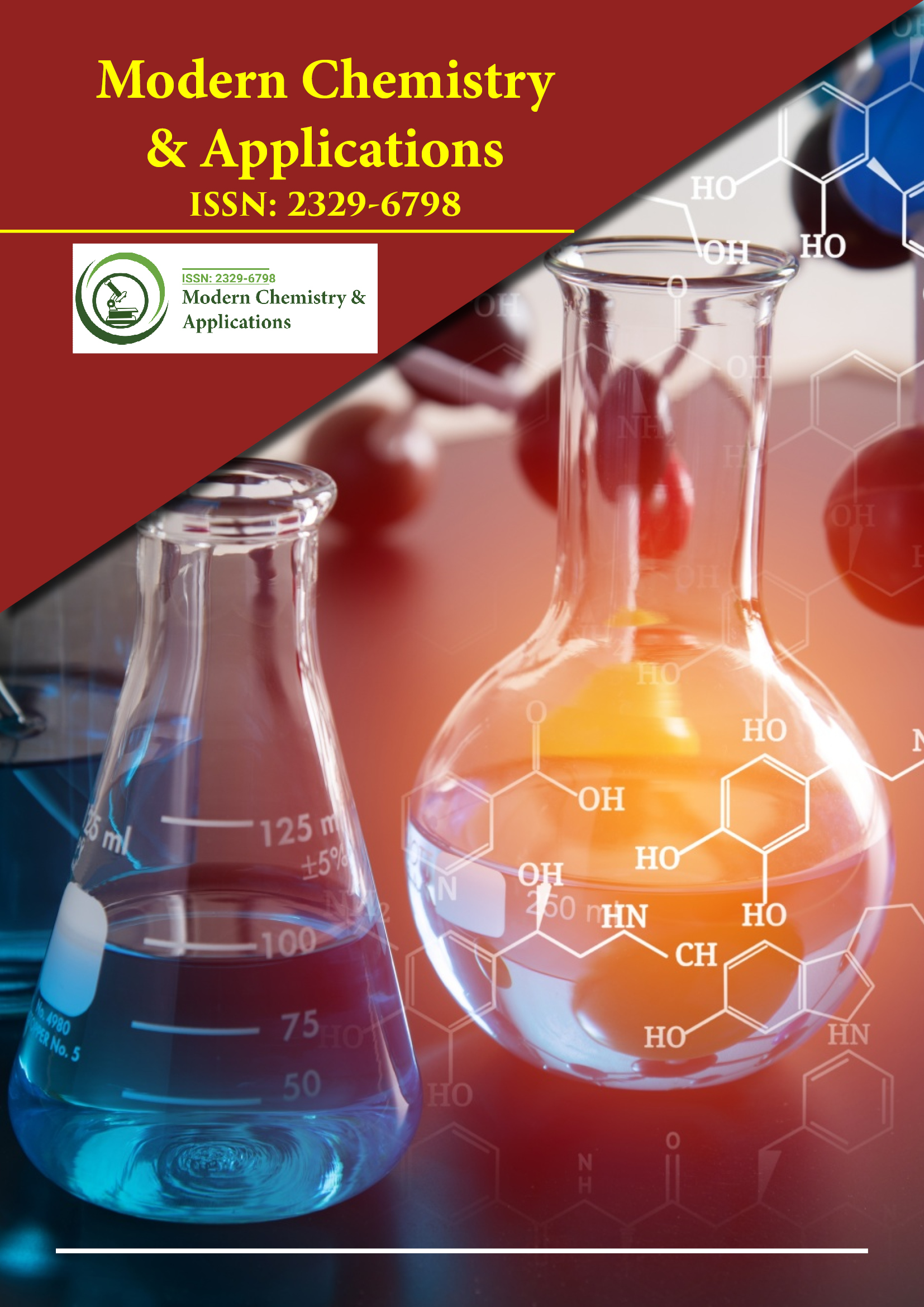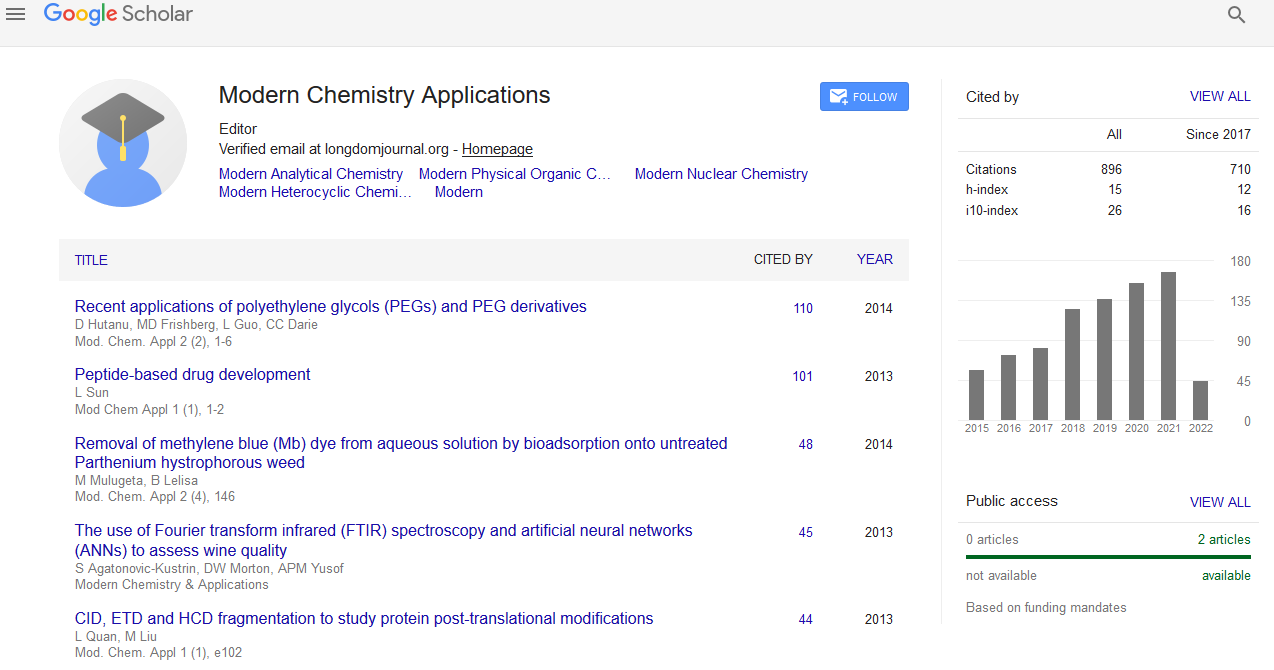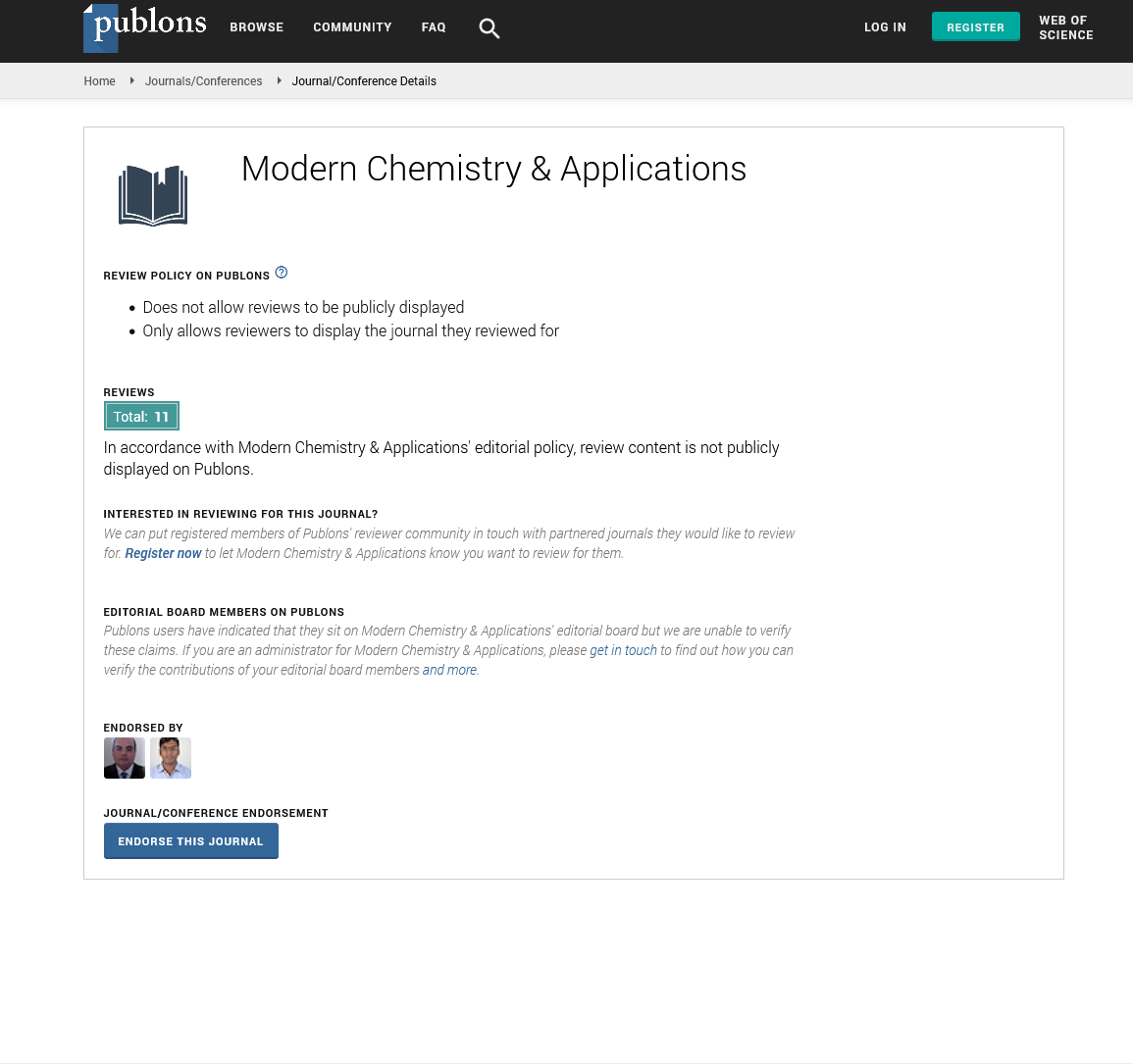Indexed In
- Open J Gate
- JournalTOCs
- RefSeek
- Hamdard University
- EBSCO A-Z
- OCLC- WorldCat
- Scholarsteer
- Publons
- Geneva Foundation for Medical Education and Research
- Google Scholar
Useful Links
Share This Page
Journal Flyer

Open Access Journals
- Agri and Aquaculture
- Biochemistry
- Bioinformatics & Systems Biology
- Business & Management
- Chemistry
- Clinical Sciences
- Engineering
- Food & Nutrition
- General Science
- Genetics & Molecular Biology
- Immunology & Microbiology
- Medical Sciences
- Neuroscience & Psychology
- Nursing & Health Care
- Pharmaceutical Sciences
Intensification of the rate of production of an annular electrochemical reactor used to conduct diffusion controlled reactions by the combined swirl flow and surface roughness
International Conference on Applied Chemistry
October 17-18, 2016 Houston, USA
Dina Ahmed El-Gayar, S A Mustafa and G H Sedahmed
Alexandria University, Egypt
Scientific Tracks Abstracts: Mod Chem appl
Abstract:
Rates of mass transfer at the inner rough surface of an annulus were determined under swirl flow by an electrochemical technique which involves measuring the limiting current of the cathodic reduction of K3Fe(CN)6. Roughness was made by cutting longitudinal grooves in the inner cylinder transverse to swirl flow. The variables studied were solution velocity, peak to valley height of the roughness element, physical properties of the electrolyte, active length of the inner cylinder and the effect of drag reducing polymers. The rate of mass transfer was found to increase with increasing swirl flow velocity and the degree of surface roughness. Mass transfer data at smooth and rough surfaces were correlated by dimensionless correlations. Drug reducing polymers were found to decrease the rate of mass transfer by an amount ranging from 5 to 23%. Implication of the present results for the design and operation of high space-time yield annular and catalytic reactors used to conduct diffusion controlled reactions such as electro organic synthesis; electrochemical waste water treatment; photo catalytic reactions and immobilized enzyme catalyzed biochemical reactions etc., were highlighted. The importance of the present results in designing more efficient annular membrane equipment's with inner corrugated membrane to conduct processes such as reverse osmosis, dialysis and ultra-filtration under swirl flow was pointed out. By virtue of the analogy between heat and mass transfer the importance of the present results in designing more efficient heat exchanger was noted.
Biography :
Dina Ahmed El-Gayar has completed her PhD from Alexandria University Faculty of Engineering and finished MSc Chemical Engineering from the same university in 2009. She is Lecturer at Chemical Engineering Department, Alexandria University. She is Instructor for Process control and Renewable Energy Resources. She is member in the executive office of Quality Assurance Unit in faculty of Engineering. She works in Alex Uni. Team in a Trinex project funded by Tempus as one of the partners of the project. She has published 2 papers in international journals and 2 papers are in progress.
Email: dina.elgayar@alexu.edu.eg


